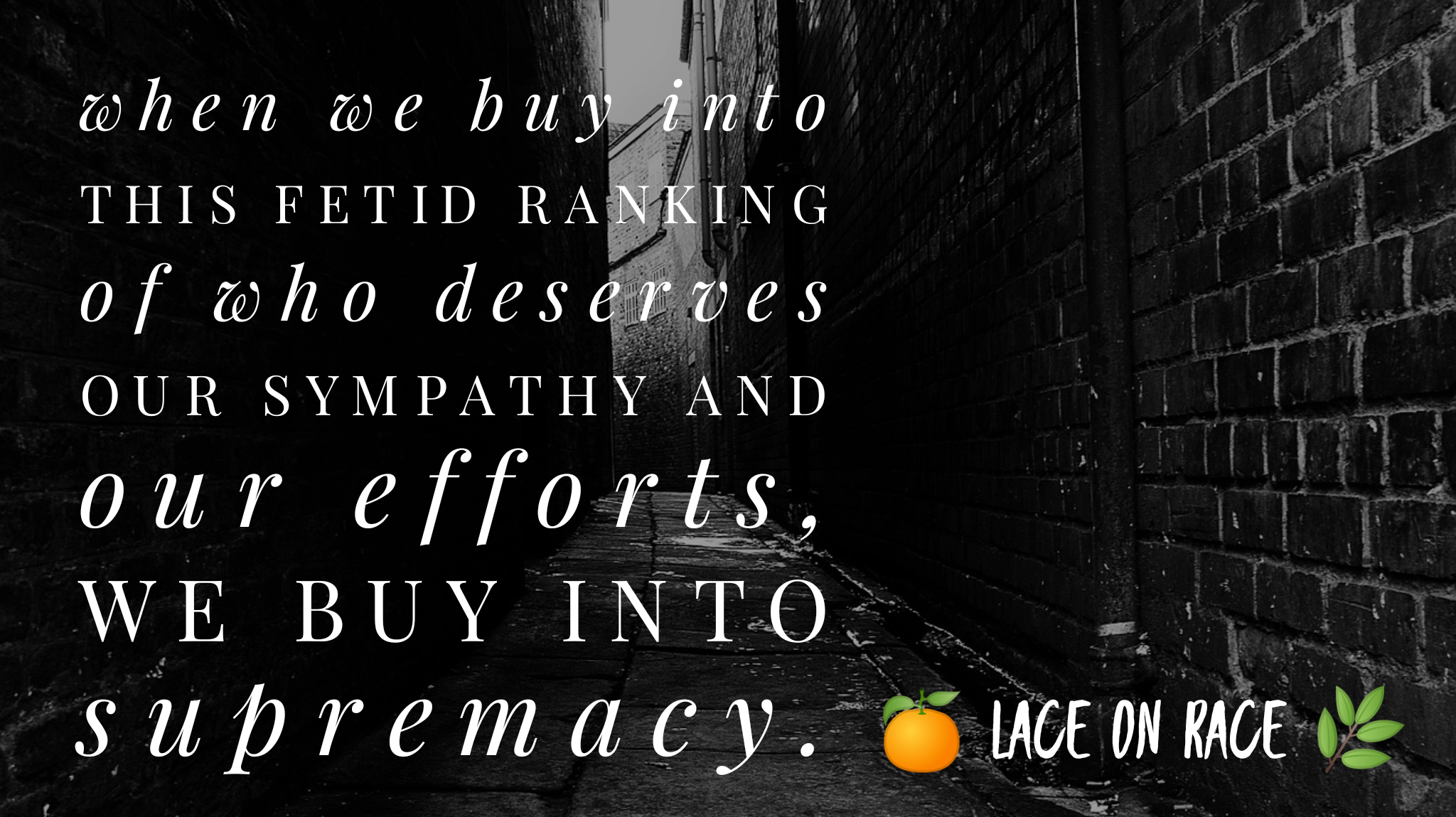In part one of this series, we talked about inherent worth; that my life, that any life actually, is no less valid or legitimate for work or inspiration or lessons gleaned–or not– for the world by that life.
This is a vitally important truth. Hold on to it as we go deeper.
So often, whenever there is a news story or a viral video of a brown or Black person being humiliated, brutalized, or killed, there are sharp differences in tone and framing, conditioned solely upon the putative worth, as determined by the media or of social media pundits, of the person being oppressed. Did the person have a college degree? Did they have a record with the police? How were they dressed? What was their job? What about their kids? Was their car nicer than society deems they deserve, or did they drive a beater? Did they volunteer (but only for the right, socially acceptable causes)? Where did they live?
All of these things factor into not only how the crime, legal or moral, is processed by those who pass judgement, but also how we feel about the person themselves.
This should not have to be said, but I will state it anyway, and firmly: these details, meant to stand as code for class and income and racial status; for respectability itself, should not matter. But it does.
We see it all the time. The media and the dominant culture assumes that whatever harm was incurred was justifiable, or at least understandable, even as they do their best to dig up dirt that makes the harm inevitable and incontestable.
This is part and parcel of dehumanizing those who had already been oppressed. He smoked dope in 1998? He deserved the beating. She talked back to a cop? She deserved to die.
In so doing, we put the victim’s humanity on trial, not the ones who perpetuated the harm. Called the N word in an Olive Garden? There is more interest in the ‘character’ of the victim than the demonstrated lack of character of the instigator. A 6 year old girl being handcuffed? How dare she talk back to the teacher. A woman with her kids taken away after domestic violence? What was she doing with that man in the first place? A woman was assualted? Her brother was arrested 10 years ago. None of this makes sense. But in our society, it makes perfect sense; and has real consequences.
No one goes into the family history of the woman who was robbed in La Jolla. No rambunctious white child will ever feel the chafe of a handcuff or a chokehold in the hallway. No white waitress will have to endure the humiliation of stepping aside for the comfort of a white customer. No humanity is ever spilled in the face of white victimhood. Our very status as homo sapiens are questioned when we are the victims.
No such scrutiny for the perps though. We see that too, in how they are presented to us by the media. A family man. A woman threatened by the specter of dark skin where it’s not supposed to be.
We can only march and agitate and stand those who are unblemished. But the media makes sure we see the real (and manufactured) acne scars of those already harmed. So much though that they spend more time and emotional and sometimes legal effort on their defense of what should not have to be defended at all–their humanity and the right not to be harmed–than they can with their recovery and healing. Those who are killed, by individuals or by the State, leave their families to mount a defense on their behalf in the media before they even have a chance to mourn.
Again. It is wrong and violent to force a person or a family to insist upon what should be a given. When we play into that, when we herald the innocence of a victim by breaking them out by noting their achievements, their job, their net worth, we do a disservice to those brutalized who do not have the privilege of those markers.
Every life has value. Both the accountant’s and the fry cook. Both the social worker and the woman who got fired three times last year. Both the preacher and the woman who shoplifted bread.
When we buy into this fetid ranking of who deserves our sympathy and our efforts, we buy into supremacy. And we are saying something stunningly immoral: that when we agree with the world’s criteria for acceptable humanity, we are also agreeing with denying the humanity of those who don’t hit society’s toxic markers.
Everyone has inherent dignity; no one’s worth should be predicated on their bank account or zip code or CV.
But we do, and in so doing we collude with little, and not so little, evil.
When humanity is stripped, the door is open to atrocity.

Leave a Reply